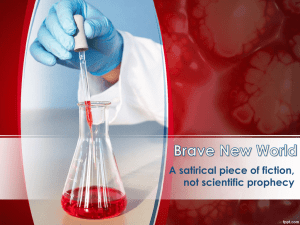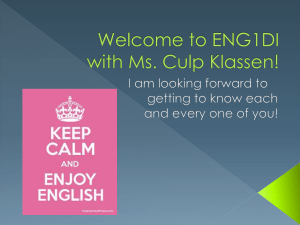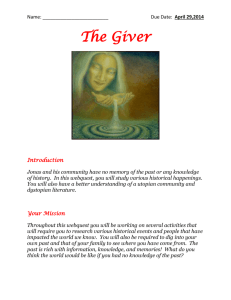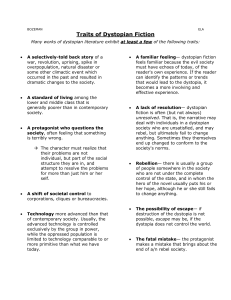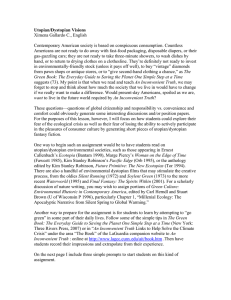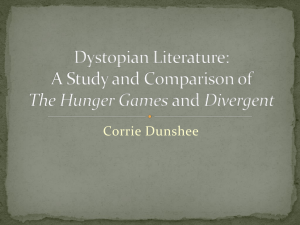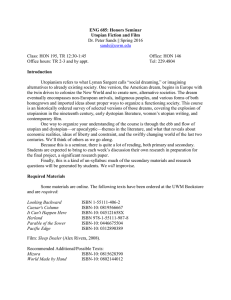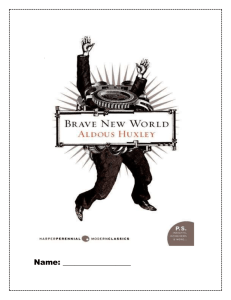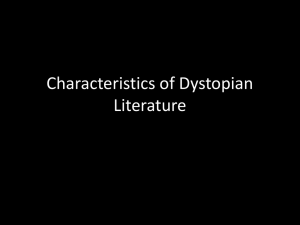Helpful Hints for Reading these Texts:
advertisement
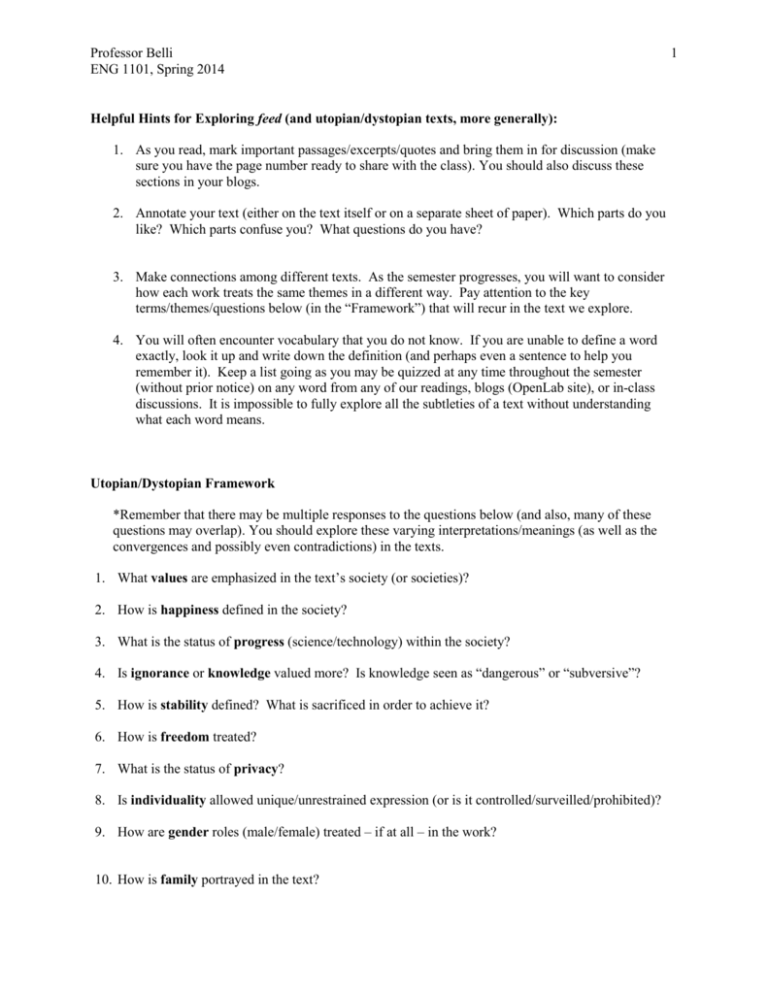
Professor Belli ENG 1101, Spring 2014 Helpful Hints for Exploring feed (and utopian/dystopian texts, more generally): 1. As you read, mark important passages/excerpts/quotes and bring them in for discussion (make sure you have the page number ready to share with the class). You should also discuss these sections in your blogs. 2. Annotate your text (either on the text itself or on a separate sheet of paper). Which parts do you like? Which parts confuse you? What questions do you have? 3. Make connections among different texts. As the semester progresses, you will want to consider how each work treats the same themes in a different way. Pay attention to the key terms/themes/questions below (in the “Framework”) that will recur in the text we explore. 4. You will often encounter vocabulary that you do not know. If you are unable to define a word exactly, look it up and write down the definition (and perhaps even a sentence to help you remember it). Keep a list going as you may be quizzed at any time throughout the semester (without prior notice) on any word from any of our readings, blogs (OpenLab site), or in-class discussions. It is impossible to fully explore all the subtleties of a text without understanding what each word means. Utopian/Dystopian Framework *Remember that there may be multiple responses to the questions below (and also, many of these questions may overlap). You should explore these varying interpretations/meanings (as well as the convergences and possibly even contradictions) in the texts. 1. What values are emphasized in the text’s society (or societies)? 2. How is happiness defined in the society? 3. What is the status of progress (science/technology) within the society? 4. Is ignorance or knowledge valued more? Is knowledge seen as “dangerous” or “subversive”? 5. How is stability defined? What is sacrificed in order to achieve it? 6. How is freedom treated? 7. What is the status of privacy? 8. Is individuality allowed unique/unrestrained expression (or is it controlled/surveilled/prohibited)? 9. How are gender roles (male/female) treated – if at all – in the work? 10. How is family portrayed in the text? 1 Professor Belli ENG 1101, Spring 2014 11. How much emphasis is placed on community or solidarity? Are true intimacy and communication allowed to develop (or do we only see superficial bonds form among the characters)? 12. What is the status of religion? Does it exist and, if so, in what form? Who/what is “worshipped”? 13. What is the class/caste system in the society (is the society organized hierarchically)? 14. How do propaganda, rhetoric,” and slogans function in this society? 15. What is the status of “literacy” (the written word, books, etc.)? 16. What roles do history and the past play in the work? 17. Are nostalgia and sentimentality present in the work? If so, how do they function? 18. Are there forms of soma1 that are available/encouraged and which help members of the society to escape the real world around them? [Remember that “soma” can come in many forms besides pills: television, virtual worlds, sex, entertainment, etc.] 19. Is there a contrast apparent between civilized (cultured or acculturated) and uncivilized (uncultured or not acculturated) peoples and places? 20. Have the people in this society somehow moved beyond the human (or what we traditionally consider to be “human”)? If so, in what way? What are the consequences? 21. Which characters rebel against the society? Why? What are the consequences of this “rebellion”? What do these consequences tell us about the “message’ of the work? 22. Are there characters who are other (they don’t belong/fit in)? In what way are they “other,” and what does this marginality reveal about the dominant society? 23. Is there a catalyzing event that brings about rebellion or a conflict in the society? If so, what is it? 24. Is there a fatal flaw of the society (something that will be its downfall, or eventually destroy it)? If so, what is it? 25. Can the society go on forever? Or is there hope/possibility of change? Where can this “hope” be found? 26. What aspects of the society are parallel to our contemporary society? What aspects contradict our society? In Aldous Huxley’s famous dystopian novel Brave New World (1932), “soma” is a drug everyone takes to ensure they are constantly happy and don’t have any worries or problems with life (it is a distraction from the real world). 1 2
